Also known as the gastric sleeve, sleeve gastrectomy involves reducing the size of your stomach so you can eat less food in one sitting.
For more information call 805-737-8700
At Lompoc Valley Medical Center, we offer Roux-en-Y gastric bypass surgery and sleeve gastrectomy. These two surgery types make up almost 80 percent of all bariatric surgeries performed in the US.
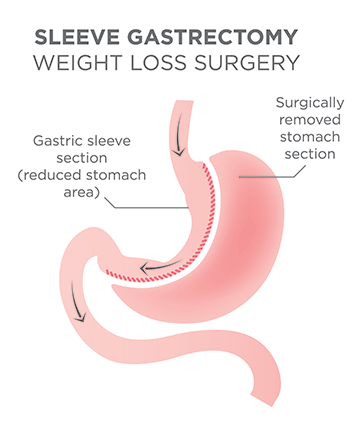 Also known as the gastric sleeve, sleeve gastrectomy involves reducing
the size of your stomach so you can eat less food in one sitting. This
is a restrictive surgery, as it allows you to eat smaller food portions
and feel full sooner.
Also known as the gastric sleeve, sleeve gastrectomy involves reducing
the size of your stomach so you can eat less food in one sitting. This
is a restrictive surgery, as it allows you to eat smaller food portions
and feel full sooner.
Gastric sleeve surgery is also known as sleeve gastrectomy. This weight-loss surgery is a restrictive surgery because it reduces the amount of food you can eat during a meal. This helps you feel full sooner so you can lose extra weight.
About 80% of your stomach is cut away in gastric sleeve surgery. The remaining 20% of your stomach will be a vertical, banana-shaped pouch. Gastric sleeve surgery is permanent and non-reversible. This is because it involves the surgical removal of a portion of your stomach.
This surgery may also affect your body’s levels of leptin and ghrelin. Leptin and ghrelin are “hunger hormones” that regulate your appetite. Lower levels of these hormones may reduce your appetite and prevent you from overeating.
Gastric sleeve surgery is a life-long commitment. When you commit to this surgery, you also commit to eating less food and making healthier choices. You will also be expected to exercise regularly. All these behaviors can help you maintain a healthy weight.
In a 2017 study published in the World Journal of Gastrointestinal Surgery, researchers looked at the effects of gastric sleeve surgery in 140 patients. All patients had a BMI between 34.2 and 76. By the end of the first year after surgery, the average BMI among these patients was 26.4.
Minimally invasive surgery is a technique your doctor will use to perform your weight loss surgery. Your surgeon will make small cuts and use a long, thin camera (called a scope) to make your stomach smaller. More than 95 percent of surgeries are minimally invasive. Having minimally invasive surgery has many benefits that make your surgery and recovery easier. Benefits include the following:
If you have problems with your incisions (where your surgeon cut into your skin during your surgery), these problems are usually minor.
Gastric Sleeve vs Gastric Bypass: What’s the Difference?
If you are a candidate for bariatric or weight loss surgery, you may be eligible for surgery performed using the da Vinci XI Single Console Robotic System. The da Vinci enables our surgeons to use computer-guided, enhanced 3D visuals to perform many standard procedures.
This advancement in surgical systems typically results in shorter stays, reduced pain, faster recovery time, smaller incisions, and minimal scarring.
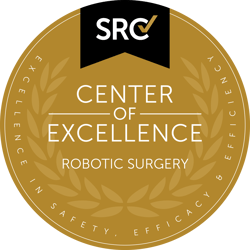
Lompoc Valley Medical Center is an SRC-accredited Center of Excellence in Robotic Surgery (COERS)
SRC is a nonprofit patient safety organization that accredits the top hospitals, outpatient facilities and medical providers who excel in patient care.
To achieve accreditation, providers undergo a rigorous, unbiased inspection to ensure they meet nationally and internationally recognized standards of excellence. The inspection evaluates treatment pathways, consultative services, equipment, patient education and support groups, and surgical experience.
Patients can trust SRC’s gold seal to identify healthcare providers who deliver excellence in patient safety and care. The requirements for accreditation programs have been proven to improve outcomes and reduce the time patients spend in the hospital.
The Lompoc Valley Medical Center, bariatric surgery program, has been accredited as a Comprehensive Center by the Metabolic and Bariatric Surgery Accreditation and Quality Improvement Program, a joint Quality Program of the American College of Surgeons and American Society for Metabolic and Bariatric Surgery. Patients seeking surgical treatment for obesity and related conditions have a high-quality choice for receiving care from our nationally accredited program, which meets the highest standards for patient safety and quality.
Your weight loss journey is personal—and it's an important decision. That's why our expert team will work with you to navigate the process from beginning to end and choose the surgical option that fits your needs. We offer a full range of procedures, conveniently in town. We've helped lots of people achieve their goals! Let us help you too.

As a married professional couple with an adventurous and busy social life, Jessica and John Bailey had so many ...
Continue Reading
Nothing seemed to work. And as she neared the end of her pregnancy leave, she had another major problem: as a medic ...
Continue Reading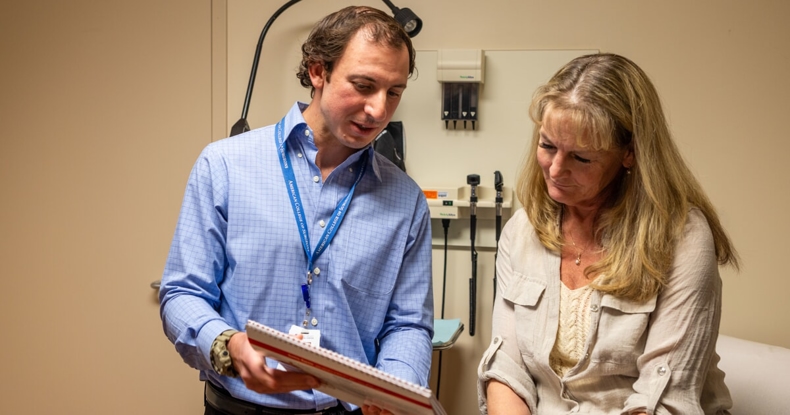
The weight gain didn’t come all at once for Leslie Wuest. She considered herself active and worked out. She was fit ...
Continue Reading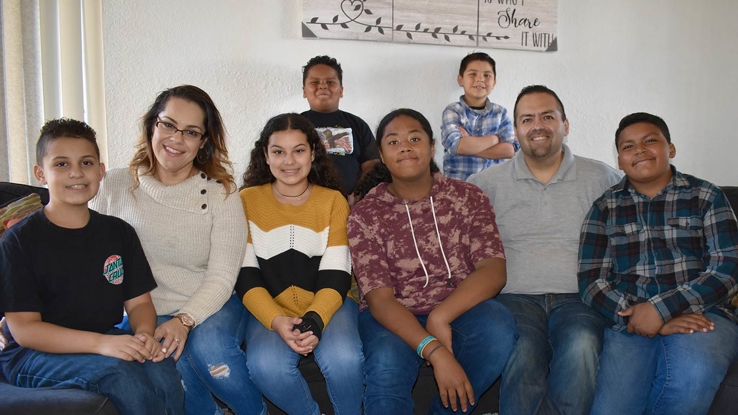
Armando felt like a healthy person, and he had no other major medical issues such as diabetes or high blood ...
Continue Reading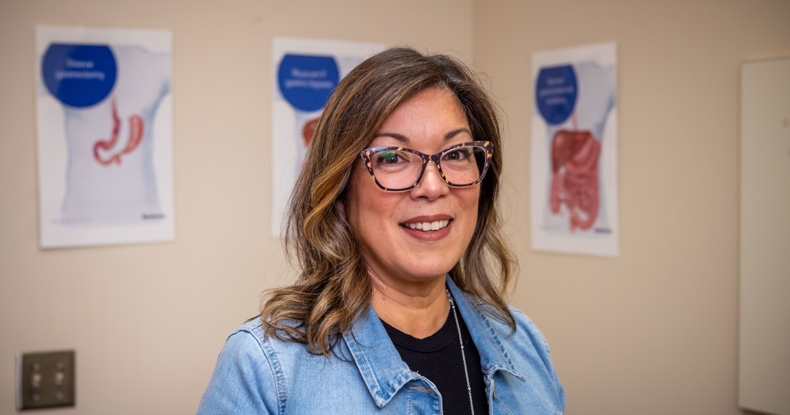
Nearing her mid-50s, Mona Martin found she was facing a host of medical problems – she was overweight, had ...
Continue Reading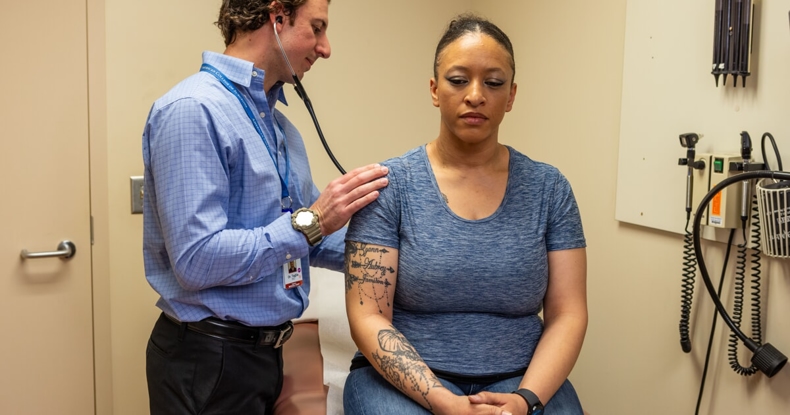
After having bariatric weight loss surgery, Ashunta McMillan laughed at the things she noticed about herself. ...
Continue Reading
Looking back at her life, Janet Schrader can easily mark the times when she gained a lot of weight. When she was ...
Continue Reading
What people didn’t see or understand was that when my dad was 21, he was in a severe car crash. The impact ...
Continue Reading